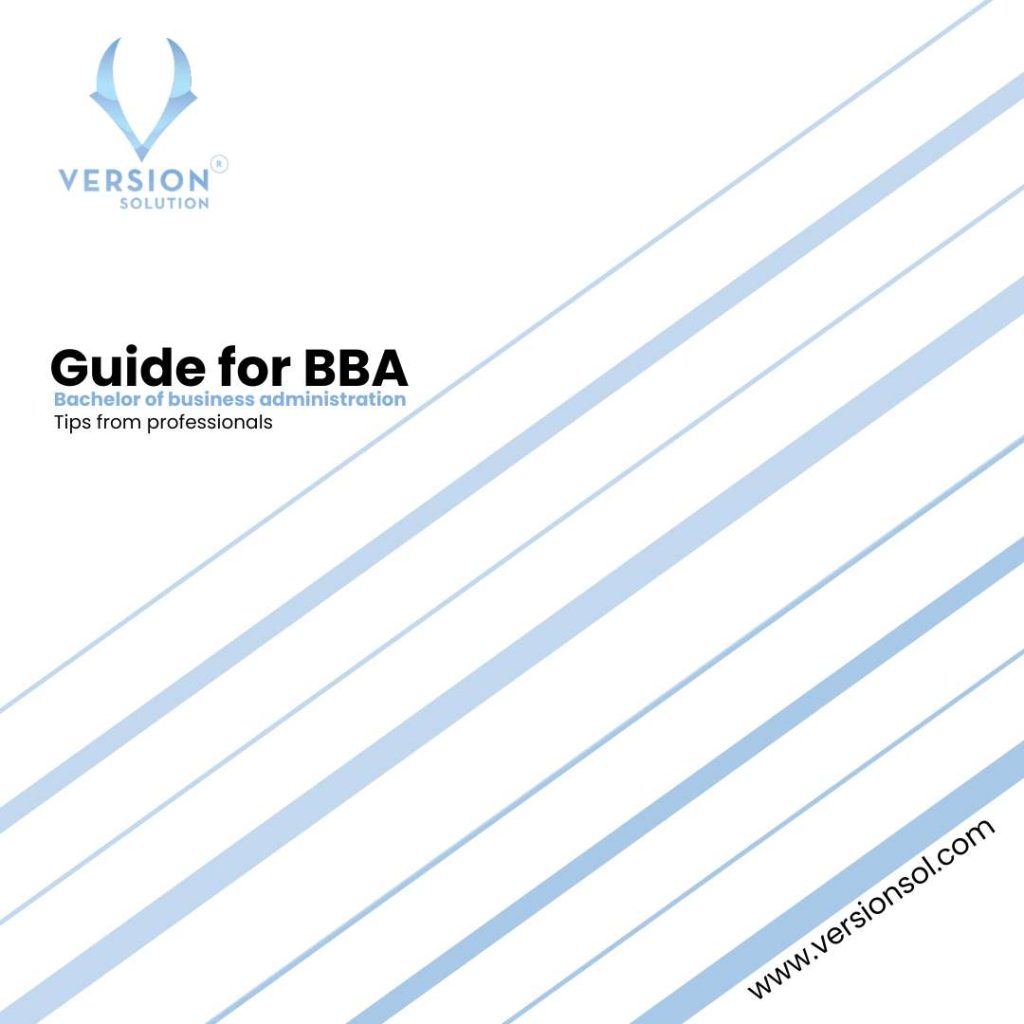The Bachelor of Business Administration, commonly known as BBA, has a rich historical background dating back to the early 19th century. Established to meet the growing demand for specialized business education, this degree equips students with essential skills in management, finance, marketing, and more. Today, pursuing a Bachelor of Business Administration opens doors to diverse career opportunities in various industries worldwide.
Whether you aspire to become a successful entrepreneur, climb the corporate ladder, or delve into the world of finance, a BBA degree sets a solid foundation for your professional journey. Stay tuned as we explore the benefits, career prospects, and key insights into the dynamic field of business administration.

Understanding BBA Curriculum Structure
Core Subjects
The BBA curriculum typically includes core subjects like accounting, marketing, finance, and management. These courses provide a solid foundation in business principles and practices. Students delve into areas such as economics, organizational behavior, and business law.
Specialization Options
Students pursuing a BBA degree often have the opportunity to specialize in areas such as entrepreneurship, international business, or human resource management. Specializations allow students to focus on their interests and career goals within the broader business framework.
Practical Skills Development
One of the key benefits of a BBA program is the development of practical skills. Through internships, case studies, and group projects, students gain hands-on experience in problem-solving, decision-making, and communication. These skills are essential for success in the dynamic business world.
Exploring BBA Accreditation
Importance
Accreditation is crucial for BBA programs to maintain quality standards and ensure credibility in the academic world. It validates the program’s rigor and relevance, giving students confidence in their educational investment.
Process
The accreditation process for undergraduate business administration programs involves rigorous evaluation by accrediting bodies. These bodies assess factors like faculty qualifications, curriculum alignment with industry needs, and student outcomes.
Significance
Accreditation plays a vital role in ensuring curriculum quality by holding institutions accountable to set benchmarks. It guarantees that students receive education meeting established standards, enhancing their employability prospects.
Identifying Top Global Business Schools
Ranking Criteria
Global business schools are evaluated based on criteria like faculty quality, alumni success, industry partnerships, and international diversity.
The rankings consider factors such as research output, student satisfaction, and the school’s reputation in the global business world.
Impact on Student Choices
Rankings significantly influence students’ decisions when selecting a business school. They rely on these rankings to gauge a school’s quality and opportunities for networking.
Prospective students often prioritize schools with strong ties to various industries and renowned companies for better career prospects.
Reputation and Influence
Top global business schools hold significant influence in the business landscape. Their reputation attracts top talent from around the world seeking expertise in areas like supply chain management and finance.
Alumni from prestigious institutions often have an edge in securing high-profile positions in multinational companies, especially in the United States.
Developing Essential BBA Skills
Practical Skills
BBA programs focus on enhancing practical skills that are crucial for success in the business world. Students engage in real-world projects to apply theoretical knowledge.
Hands-on experiences through internships and case studies provide practical insights into various business scenarios. These experiences prepare students for diverse challenges.
Managerial Skills
BBA courses aim to cultivate managerial skills, enabling students to lead teams effectively and make strategic decisions. Understanding business operations is vital.
Students learn how to analyze data, develop strategies, and manage resources efficiently. These skills are essential for thriving in managerial roles.
Communication Skills
Effective communication skills are fundamental in the business realm. BBA programs emphasize verbal and written communication proficiency for conveying ideas clearly.
Students participate in presentations, group discussions, and written assignments to hone their communication abilities. These skills are vital for building professional relationships.
Decision-Making Capabilities
BBA programs nurture decision-making capabilities, a critical skill for navigating complex business environments. Students learn to evaluate risks, analyze information, and make informed decisions.
Hands-on training opportunities allow students to simulate real-world scenarios, enhancing their decision-making skills. This practical experience is invaluable for future business roles.
Training Opportunities
In BBA programs, students have access to various training opportunities, including workshops, seminars, and industry collaborations. These experiences bridge the gap between theory and practice.
Internships provide hands-on exposure to the business world, allowing students to apply classroom knowledge in real settings. This practical training equips them with valuable insights.
Mapping Career Paths after BBA
Diverse Options
After completing a Bachelor of Business Administration (BBA), graduates have diverse career paths to explore. These include roles in finance, marketing, human resources, and operations.
A BBA equips students with skills like critical thinking, communication, and problem-solving that are crucial for success in various industries. This degree program also provides a solid foundation in business principles.
With a BBA under their belt, individuals can pursue career opportunities in sectors such as banking, consulting, retail, and technology. The versatile nature of the degree opens doors to a wide range of job prospects.
Industry Readiness
BBA graduates are well-prepared for the demands of different industries due to their broad skill set. They can seamlessly transition into roles that require strategic planning, data analysis, and project management skills.
The curriculum of a BBA program often includes internships and practical projects that expose students to real-world scenarios. This hands-on experience enhances their industry readiness and makes them valuable assets to employers.
Growth Trajectories
Upon completing a BBA, individuals can chart out potential career growth trajectories based on their interests and aspirations. They can aim for positions such as marketing manager, financial analyst, HR specialist, or operations manager.
The networking opportunities provided during a BBA program also play a significant role in shaping future career paths. Building connections with industry professionals can lead to mentorship opportunities and open doors to exciting career advancements.
Summary
Understanding the structure and accreditation of a Bachelor of Business Administration program, exploring top global business schools, developing essential skills, and mapping career paths post-BBA are crucial steps in your journey towards a successful business career. By familiarizing yourself with these aspects, you can make informed decisions that align with your goals and aspirations. Remember, the right BBA program can open doors to exciting opportunities and lay a solid foundation for your future endeavors. Stay proactive, stay focused, and keep striving for excellence in all that you do.
Frequently Asked Questions
What is the structure of a typical BBA curriculum?
The BBA curriculum typically includes core courses in business fundamentals like accounting, marketing, finance, and management. It also offers elective courses for specialization areas such as entrepreneurship or international business.
How important is accreditation when choosing a BBA program?
Accreditation ensures that a BBA program meets quality standards set by accrediting bodies. Opting for an accredited program enhances credibility, ensures high-quality education, and may provide better career opportunities.
How can I identify the top global business schools offering BBA programs?
Research reputable rankings like QS World University Rankings or Financial Times Global MBA Ranking. Consider factors like faculty expertise, alumni network, industry connections, and internship opportunities to identify top global business schools offering BBA programs.
What essential skills can I develop through a BBA program?
A BBA program helps you develop crucial skills such as leadership, critical thinking, communication, problem-solving, and analytical skills. These skills are highly valued by employers across various industries and are essential for career success.
What are some common career paths after completing a BBA program?
After completing a BBA program, graduates often pursue careers in areas such as marketing, finance, human resources, consulting, entrepreneurship, or operations management. The versatile skill set acquired during the program opens doors to diverse job opportunities in the business world.
